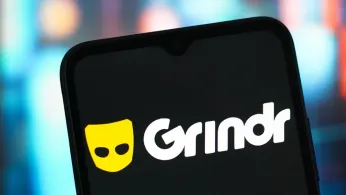
6 hours ago
Grindr’s Million-Test Moment: How a Dating App Became an HIV Prevention Powerhouse
READ TIME: 3 MIN.
For decades, HIV advocacy has been entwined with queer activism—marches, fundraisers, and urgent conversations over kitchen tables and club booths. But in 2025, the most powerful HIV outreach might just be happening in the palm of your hand. Thanks to a bold partnership between Grindr and Together TakeMeHome, more than one million free HIV self-test kits have shipped out, quietly delivered to mailboxes across the country, with nearly half ordered directly through the Grindr app itself .
This is more than a public health milestone—it’s a cultural flex. In a world where LGBTQ+ lives are still too often sidelined in healthcare, Grindr has turned its global reach into a lifeline, proving that digital connection can mean the difference between stigma and empowerment.
It started with a deceptively simple idea: put HIV self-testing just a tap away. Through an in-app button, Grindr users across the U.S. can order a kit in under a minute—no clinic visits, no awkward conversations, no cost . For many, this isn’t just convenient—it’s transformative. One in four recipients are first-time testers, a statistic that underscores how far-reaching (and overdue) this kind of accessibility is .
Jen Hecht, co-founder of Building Healthy Online Communities (BHOC), captured the emotional resonance: “Together TakeMeHome shows what’s possible when public health meets people where they are: online, in their communities, and on their terms. Reaching one million test kits is an incredible milestone for our program and the communities it serves” .
For LGBTQ+ people, HIV isn’t just a medical issue—it’s steeped in history, politics, and the ongoing fight for dignity. The barriers to testing—cost, transportation, privacy, and especially stigma—have always hit hardest in our communities . Grindr’s move turns the app from hookup central into an engine for health justice. It’s not about changing who we are; it’s about making queer spaces safer, more informed, and radically inclusive.
Mohan Sundararaj, Managing Director of Grindr for Equality, put it best: “Every test sent out is an act of care, an act of trust, and a step toward a healthier, more equitable world” . In a landscape where anti-LGBTQ+ laws and funding cuts threaten progress, each self-test isn’t just a statistic—it’s a small act of resistance.
The success of Together TakeMeHome is a testament to what happens when queer tech meets public health savvy. It’s not Grindr’s only new trick—2025 has seen the app evolve into more than a dating platform, with features like Grindr Presents (an uncensored, in-app content hub for podcasts, editorials, and music drops) and the “Right Now” feed, which lets users connect instantly for whatever they’re seeking .
But the HIV self-test initiative is arguably its most profound contribution. By leveraging Grindr’s digital reach, programs like Together TakeMeHome overcome not just logistical barriers, but emotional ones too. The message? You deserve to know your status, free from fear or shame.
As Jen Hecht explained, “This program helps overcome barriers to testing, such as transportation, time, and concerns about privacy and judgment. We hear from our users that they appreciate the ease and convenience of ordering online and testing at home” .
The implications go far beyond the U.S. The World Health Organization now recommends HIV self-testing as a key strategy for global “95-95-95” goals—ensuring that 95% of people living with HIV know their status, 95% of those receive treatment, and 95% on treatment achieve viral suppression .
The Grindr-Together TakeMeHome model is spreading worldwide, with pilot programs in places as diverse as Australia, Namibia, New Zealand, Ireland, London, Cambodia, Spain, Switzerland, and Vietnam. Each project adapts to local needs and languages, but the core is the same: trust, partnership, and a belief in queer agency .
This milestone is just the beginning. With renewed funding approved for another 360,000 tests in the U.S. alone over the next year, the movement is gathering steam . As Sundararaj noted, “The need for accessible testing remains urgent, especially as funding cuts and anti-LGBTQ laws threaten to reverse progress. Together, TakeMeHome proves that there’s a way forward that relies on collaboration, innovation, and the belief that everyone deserves the right to know their status.”
For queer readers, this isn’t just another health story—it’s a reflection of our resilience, our ingenuity, and our capacity to transform even hookup apps into avenues for care. Whether you’re ordering a self-test for the first time or cheering from the sidelines, this is a win for queer futures, powered by the simple act of knowing.
It’s not just about swiping right—it’s about swiping toward a healthier, more empowered community.






